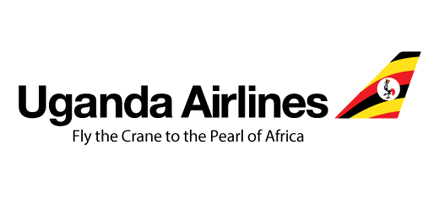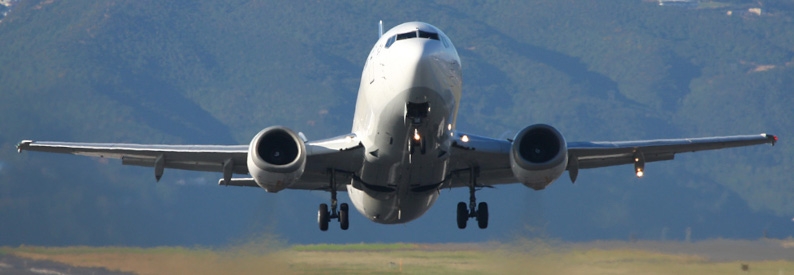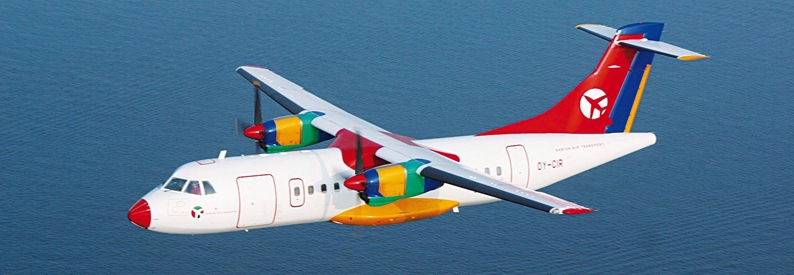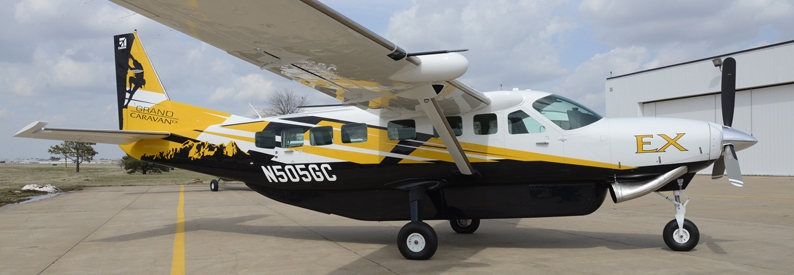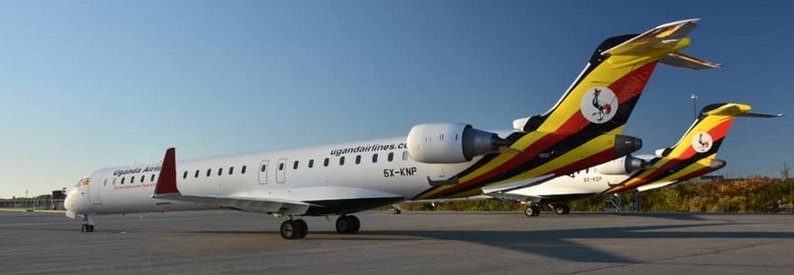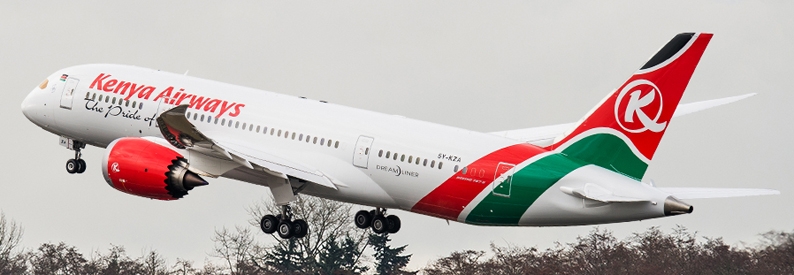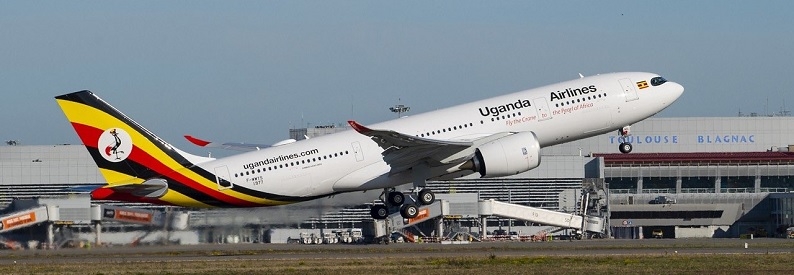Uganda's public procurement watchdog has cancelled Uganda Airlines' current aviation fuel and inflight support procurement process citing the unlawful "discriminatory treatment of bidders and unfair favouring of the best-evaluated bidders" in contravention of the Public Procurement and Disposal of Public Assets Act.
The March 7 decision of the Public Procurement and Disposal of Public Assets Tribunal followed a complaint filed by a disqualified bidder, United Arab Emirates-based Mixjet Flight Support FZE, against Uganda Airlines. The latter may re-tender for the procurement.
Jet fuel supplier
At the end of an international bidding process for jet fuel supply at Entebbe, during which ten bids were submitted, the airline in January 2022 had chosen Vivo Energy (Uganda) and Associated Energy Group as the winning bidders at a contract value of USD12.2 million and USD17.2 million, respectively. MixJet Flight Support was initially disqualified for several reasons but challenged the decision through an administrative review process in January 2023. On February 9, Uganda Airlines' accounting officer dismissed MixJet's complaint, which then filed a complaint with the tribunal on February 13.
The tribunal determined that Uganda Airlines "erroneously stipulated eligibility criteria which do not belong to eligibility requirements". It also determined that "there was unequal treatment of the bidders in the impugned procurement. [...] Even the purported best-evaluated bidders did not qualify for the awards made". It said Uganda Airlines illegally modified the standard bidding document issued by the Public Procurement and Disposal of Public Assets Authority. The tribunal further found that MixJet Flight Support's complaint had been valid and that the airline's accounting officer should not have dismissed it.
The new irregularities at Uganda Airlines follow a damning report to the country's parliament in September 2022 by the Public Accounts Committee Commissions, Statutory Authorities and State Enterprises (PAC-COSASE) following its evaluation of an Auditor General report on the airline in FY 2020/2021. Among the committee's findings was that Mixjet had acted as an agent to provide the airline with fuel. Moreover, a local fuel company in Mogadishu, Somalia, was contracted by Mixjet to supply fuel to the carrier. The committee pointed out there had been no merit in incurring the "middle man" costs when the airline could have procured fuel directly from suppliers such as Shell and Total at about 20% less. It recommended that the responsible managers involved in procuring fuel and pricey insurance contracts be held accountable for flouting procurement rules.
Damning report
The PAC-COSASE report found the national carrier had the potential to strive but only if "financial impropriety, disregard of the law, and staff issues were dealt with robustly".
The committee concluded that "Uganda Airlines' management is bedevilled with governance challenges in its operations. [...] This is evidenced by a glaring disregard for the law, lack of transparency, and inefficiency. The procurement function is nearly non-existent, with evidence of continuous flouting of the Public Procurement and Disposals of Assets Act. The supervisory role of the board during FY 2020/2021 was lacking," it found.
The committee also flagged the existence of what it claimed was an internal syndicate among staff members that defrauded the airline of USD253,189 worth of tickets for 908 fake passengers. Of these, 71.6% were open tickets, which, if not closed, could be voided, cancelled or exchanged, leading to revenue loss. The committee recommended a forensic audit to prosecute the culprits and recover the lost funds from all those involved in the scam.
Lack of qualifications
The committee noted that some top officials lacked the minimum required qualifications. "Chief Executive Officer Jennifer Bamuturaki does not possess the academic qualifications stipulated in the human resource manual. The requirement for CEO is a Bachelor's degree and a postgraduate diploma/Master's. She only possesses a Bachelor's degree in Social Work and Social Administration." It found there was "undue influence and meddling from the shareholders in the recruitment process of the CEO".
The board had hired PricewaterhouseCoopers (PWC) at UGX98.1 million Ugandan shillings (USD26,200) to recruit a chief executive. Forty people had applied, but two days before the deadline, Minister of Works Katumba Wamala instructed them to appoint Bamuturaki following a presidential directive. The board immediately halted the recruitment process and appointed her in disregard of the procurement procedure. "The minister appeared before the committee and admitted all these facts," the committee said. It recommended that the fees paid to PWC be recovered from the board members.
CEO implicated in irregularities
In June 2021, Bamuturaki received USD12,750 to travel to ten Uganda Airlines bases but only visited Dar es Salaam and Kilimanjaro in Tanzania. She had not refunded the rest, which was unlawful, the committee said. It recommended that Bamuturaki be held personally liable for this offence and immediately repay the unaccounted funds.
Bamuturaki was also implicated in a UGX778.7 million (USD208,240) function for 600 guests - at an average cost of UGX1.3 million (USD347.50) per guest - hosted for the arrival of the first aircraft in April 2019. The event was run by Ugandan firm Abbavater Ltd, which was recommended to then-CEO Ephraim Bagenda by Bamuturaki, who was commercial director at the time. The management admitted that this cost was excessive and unwarranted. A few months later, Abbavater was hired again to do PR and advertising for Uganda Airlines and eventually paid USD897,285.
"The company was handpicked and hired in total contravention of the Public Procurement and Disposal of Public Assets (PPDA) regulations that call for an open and competitive bidding process," the committee said. Bamuturaki has denied she was party to hiring Abbavater. Yet company records showed she was a member of the evaluation committee and the contracting manager and drafted the terms of reference for the firm. She later admitted to being friends with Abbavater CEO Mark Arnold Odeke Lenkai. Records subsequently showed she had changed her name from Jennifer Bamuturaki Musiime to Jennifer Arnold Lenkai on March 6, 2019. The committee recommended that Bamuturaki be held liable for influence peddling, conflict of interest, and participating in the procurement process without disclosing her personal interest or relation to Abbavater in contravention of the Anti-Corruption Act.
Bamuturaki should also be held responsible for an irregular contract with a group of online bloggers and refund the UGX156 million (USD41,700) spent, the committee said.
Bamuturaki declined to comment when approached by ch-aviation.
Other findings
Amongst the committee's other findings were the following:
- The accounting officer should be held liable for failing to keep proper records of assets and inventories as required under the Public Finance Management Act. While UGX8.7 billion (USD2.3 million) was disclosed as the stock value, no year-end stock-taking had been done, management exhibited weak internal controls and failed to carry out adequate supervision. "The absence of an information system database exposes the company's assets to possible theft and wastage. Failure to undertake stock counts renders the credibility of financial statement doubtful," the committee said.
- Out of a budgeted UGX304.6 billion (USD81.4 million) revenue for FY 2020/2021, only UGX48.6 billion (USD12.9 million) was collected, representing 16% of the target. Airspace closures during Covid-19 prevented the airline from operating 18 routes as planned, besides which the airline's two new A330-800Ns could not be deployed due to delays in the air operator's certificate (AOC). Still, the committee noted general corporate governance inefficiencies "like operating without approved staff structures, lack of board independence, and human resource incompetencies".
- Uganda Airlines incurred a loss of UGX164.5 billion (USD43.9 million) at the end of FY 2020/2021, mainly due to UGX211.5 billion (USD56.5 million) in total costs including UGX163.5 billion (USD43.7 million) in direct costs. In addition, employee-related expenses totalled UGX27.9 billion (USD7.4 million), indirect overheads came to UGX19.8 billion (USD5.2 million), and finance costs were UGX230.5 million (USD61,608). The committee found the initial losses of the airline were not just caused by the impact of Covid-19 but by a lack of functional management systems at the airline's inception, including recruitment, financial management policy, and procurement processes.
- The accounting officer should be held responsible for the airline's non-payment of an outstanding UGX47 billion (USD12.5 million) to the Uganda Civil Aviation Authority. UGX16 billion (USD4.2 million) had been due for more than six months, indicating a lack of financial discipline.
- The finance director should be held responsible for failing to maintain an accurate asset register leading to questions about the reported UGX1.1 billion (USD294,418) value of the airline's property and equipment.
- Purchases of spare parts were delayed because suppliers insisted on upfront payments. Management sought exemptions or waivers from various stakeholders, granted on February 23, 2022, by the minister of transport. The committee found the minister's action was irregular and amounted to the usurpation of powers and functions of the public assets authority.
- Management implemented 25 procurements outside the approved procurement plan for FY2020/2021. These were made in different currencies amounting to EUR1.1 million euros (USD1.2 million), KES61,879 Kenyan shillings (USD476), USD65,441, TZS7.7 million Tanzanian shillings (USD3,291), and UGX346.7 million (USD92,760).
- In December 2021, USD26,694 was paid to Collins Aerospace for inflight equipment without approval of the airline's contracts committee.
- Gross violations of the Public Procurement and Disposal of Public Assets Act occurred when the airline appointed companies that failed the preliminary stage of compliance, such as two companies that bid for specialised motorised equipment in ground handling.
- The committee flagged management negligence in having no agreement with Ugandan airport ground handling service DAS Handling despite USD8,621 paid in April 2021 for the control and safe custody of ground handling equipment.
- UGX103.5 million (USD27,691) paid for vehicles through direct procurement without proper justification. Culpable managers would be to be prosecuted.
- There was no evidence that USD319,226 worth of inflight service equipment for the Airbus aircraft was delivered.
- The airline paid more than USD1 million to a software provider without government approval.
- No contract was found for USD146,230 worth of business-class seat spare parts.
- From 20 procurements sampled, it became evident that there was no contract manager nor contract management files.
- The company did not have a board-approved staff structure, salary grades, or tools to assess recruitment needs. Exorbitant salaries were paid to certain staff when the airline was making losses. ln the FY 2020/2021, the total wage bill was UGX14.3 billion (USD3.8 million) compared to the previous year when the payroll was UGX7.2 billion (USD1.9 million).
